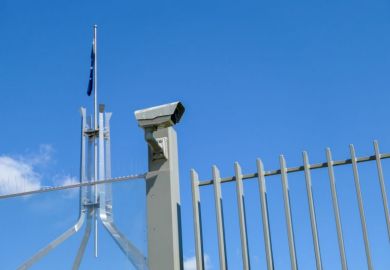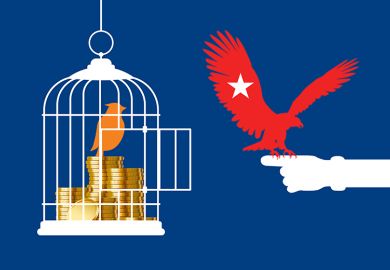Speech is only free if the “state stays out of the way” and New Zealand must avoid emulating Britain’s “extreme” approach to free speech, a Wellington forum has heard.
Victoria University of Wellington (VUW) law professor Nicole Moreham said the UK’s free speech legislation lay at odds with the discerning nature of academia. “It says [universities and student unions] can’t exclude a speaker on the basis of their ideas or their opinions,” she told VUW’s forum on the role of universities in supporting free speech.
“I’m the editor of a journal. I discriminate on the basis of ideas and opinions all the time.”
Under a coalition agreement between two of New Zealand’s governing parties, taxpayer-funded tertiary institutions must have free speech policies. While the legislation to enforce this is yet to materialise, Professor Moreham said it would be “ironic” for the government to undermine institutional autonomy with “diktats about what we do and don’t do on campus”.
“The problem…lies outside of our control to a large degree, and much more in civil society,” she said.
Māori political commentator and VUW law lecturer Morgan Godfery said governments mandating free speech was as undesirable as governments mandating speech content. “The point of freedom of speech is that the state stays out of the way,” he told the forum.
Free Speech Union chief executive Jonathan Ayling said government involvement in campus free speech was a “contradiction” and would be unnecessary in an “ideal world”. But the union’s polling suggested that most New Zealanders considered free speech to be “under threat”, and “significant proportions” of academics felt “unfree to speak out on certain issues”, he added.
Mr Ayling said the “lead-up” to the forum, when student protests precipitated its postponement, suggested a “weak and problematic…epistemological underpinning” at universities and demonstrated the need for state involvement.
Australian higher education expert John Byron said universities were “not speaker’s corner. A lectern is not a soapbox where you can just say whatever you like.”
Dr Byron, policy director at Queensland University of Technology, said “good faith” should underpin all debates. Campuses had no obligation to host speakers whose aim was to “shout” and “prevent critique”.
“It’s not what universities are for,” he said. “If you’re not serious about everybody else in the room being free and feeling able to speak, then you are not for free speech.”
University of Waikato geographer Lynda Johnston said such speakers were easy to identify. “We can see…people’s track records through what they say and where they say it; who they allow into those events,” said Professor Johnston, an LGBT advocate and queer geography expert. “It’s pretty obvious really.”
Former University of Auckland law professor Jane Kelsey said the sector had responsibilities to foster informed intellectual engagement in “robust” environments: “A university is not a free-for-all zone.” She said “censorship” of campus speakers was usually motivated by a desire to avoid upsetting sponsors or “the Chinese”, not left-wing students or academics. The “weaponisation of free speech” was a “beat-up”, she said.
Auckland University of Technology law dean Khylee Quince said campuses should not host speakers such as Julian Batchelor, a campaigner against Māori co-governance. “These are institutions of higher learning. We should not be wasting our time entering into intellectual debates with unarmed opponents.”
Campus resource collection: Higher education’s role in upholding democracy
Former VUW academic Michael Johnston, senior fellow with the NZ Initiative thinktank, said universities should be a “neutral ground” and avoid pre-judgements. “From time to time, the crackpots turn out to be right,” he noted, citing Galileo, Copernicus and Darwin.
“Sometimes people turn out to be wrong [but] other people share [their] views. If you want to debunk ideas, you’ve got to confront them head on – otherwise people will continue to believe them.”
Human rights activist Anjum Rahman said governments should have no role in determining people’s suitability to speak on campus. Rather, such decisions should be made by groups appointed by university administrators and carrying “diversity of lived experience”.
“Very often the people who make the arguments around some of this stuff are not the people that have to suffer the harm,” said Ms Rahman, founder of the Inclusive Aotearoa Collective. “Speech does cause harm and it isn’t about feelings,” she added, saying social media had fuelled deadly violence in Ethiopia, India, Kenya and Myanmar.
“We’ve heard a lot about people’s feelings. Let’s talk about…group harm and what that means. As a university…what [are] your responsibilities here? What are you upholding? Are you protecting our lives? What is your speech doing? What speech are you bringing here?”
Register to continue
Why register?
- Registration is free and only takes a moment
- Once registered, you can read 3 articles a month
- Sign up for our newsletter
Subscribe
Or subscribe for unlimited access to:
- Unlimited access to news, views, insights & reviews
- Digital editions
- Digital access to THE’s university and college rankings analysis
Already registered or a current subscriber?










